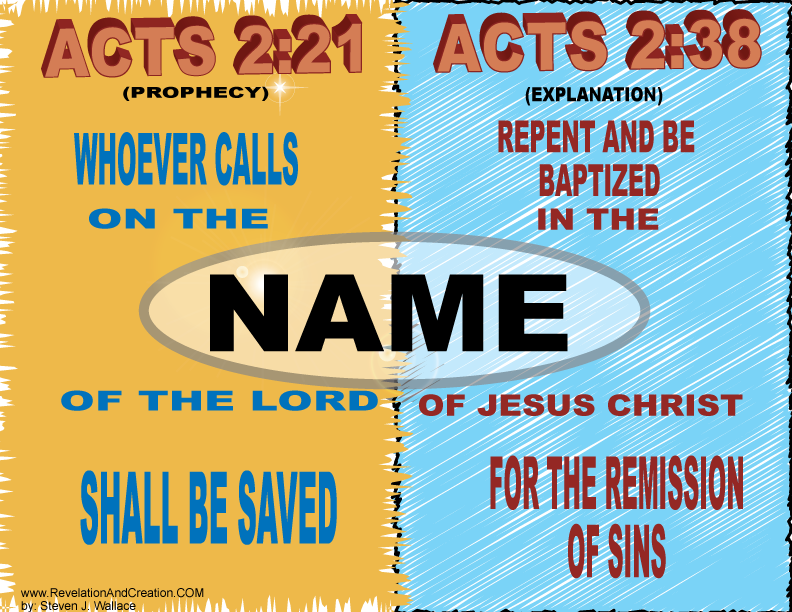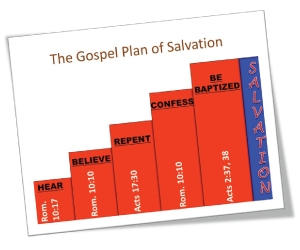.jpg) Animals
Animals
Living Lessons From Animals. How God Used Animals to Summon Man To His Senses From Both Old and New Testaments.
(In loving memory of Mocha, our guard dog, comfort animal, and our fun pet that filled our days with laughter 2007 - 2019.)
| Lesson | Author | Date | File |
|---|---|---|---|
| Why Did God Create Animals? | Wallace, Steven | 2019.09.01 | mp3, pdf |
| Lessons I've Learned From My Pet (Mocha) | Wallace, Steven | 2019.09.01 | mp3, pdf |
| How God Used Animals to Summon Man to His Senses in the Old Testament 1 | Wallace, Steven | 2019.09.08 | |
| How God Used Animals to Summon Man to His Senses in the Old Testament 2 | Wallace, Steven | 2019.09.08 | |
| How God Used Animals to Summon Man to His Senses in the New Testament 1 | Wallace, Steven | 2019.09.29 | mp3 |
| How God Used Animals to Summon Man to His Senses in the New Testament 2 | Wallace, Steven | 2019.09.29 | mp3 |
| Revelation And Creation PowerPoint and Audio Material | |||
God’s Use of Animals to Summon Man to His Senses (Old Testament)
Introduction:
- In concert with preaching, God has used innumerable approaches to bring man to repentance and to call him to His senses (ex: prophecies, judgments, wonders, parables, etc.). Job and Paul were impressed by God’s marvelous works. Job 9:10, “He does great things past finding out, Yes, wonders without number.” Romans 11:33, “…How unsearchable [are] His judgments and His ways past finding out!”
- Animals are called on to praise God (Psa. 148). How much more then should men praise God? “Let everything that has breath praise the LORD. Praise the LORD!” (Psa. 150:6).
- Let’s catalog some cases where living creatures were used to discipline, warn, and admonish man. With the use of living creatures:
Discussion:
A man’s character is revealed.
Proverbs 12:10, “A righteous [man] regards the life of his animal, But the tender mercies of the wicked [are] cruel.” The point is, that where a man regards the life of his animal, how much more he will regard the life of those dependent upon him. This can be a significant piece of information for a woman contemplating marriage!
God humble Egypt.
He used frogs, lice, flies, and locusts to prove Egyptian deities were worthless idols (Exod. 8-10).
Such magnificent works prove what Isaiah wrote 43: 11-13, “I, [even] I, [am] the LORD, And besides Me [there is] no savior. I have declared and saved, I have proclaimed, And [there was] no foreign [god] among you; Therefore you [are] My witnesses," Says the LORD, "that I [am] God. Indeed before the day [was], I [am] He; And [there is] no one who can deliver out of My hand; I work, and who will reverse it?"
Exodus 5:1, 2. Pharaoh knew Hapi, Khepri, Geb, Heqet (cf. Exod. 8:3) Ra, etc., but not the real Jehovah.
Those given to idleness were called to duty.
One of the richest men in earth’s history told sluggards to go to the ant (Prov. 6:6-11). Ant qualities: Industrious, self-motivated, foresight.
A king was able to see himself as in looking at a mirror (2 Sam. 12:3-13, emp. v. 4).
The point of the parable is that David killed a man’s only lamb for a stranger, a wayfaring man. I think David is the rich man and temptation is the wayfaring man. He killed and took for himself, yet, he is not himself, but is behaving as a wayfaring man, a prodigal in a far country, not himself.
God had blessed David greatly, 2 Sam. 12:7, 8. David’s actions were fundamentally leveled against God. In killing Uriah and taking his wife, he had despised the word and the One who gave the word! Compare the same with the gospel and Jesus, John 12:48.
Mark 16:16—the “belief” is not directly “believing in Jesus” but rather, is tied to believing what Jesus TAUGHT in the gospel message. The message preached by the Lord’s apostles (Mk. 16:15, “And He said to them…”). Luke 10:16, “He who hears you hears Me, he who rejects you rejects Me, and he who rejects Me rejects Him who sent Me.”
2 Thessalonians 1:8-10. Recall: Belief + Baptism = Salvation. It does not say here, “on those who do not believe,” but rather, “on those who do not obey.” Some assert that baptism is not essential in Mark 16:16 because it doesn’t say, “but he who does not believe and is baptize will be condemned.” Here it affirms that doom is poured out on those who do not “obey.” The gospel is not only to be believed but obeyed. On the other hand, it shows what is believed…the “testimony.”
Is the command to be baptized a part of the testimony? One who despises the commandment of the Lord despises the Lord! (cf. Lk. 7:29, 30).
David’s response is very interesting. Until now he was blind to his own injustice. The story of a poor man and innocent lamb rushed David to his senses. He was about to drown and perish in the quicksand of sin. Yet this parable ejected him out in his gasp…I HAVE SINNED!
Nathan likely expected David’s emotional response (2 Sam. 12:5, 6). Nathan took David’s right emotion and applied an unknown truth to David’s wrong actions (2 Sam. 12:7)! One of the most powerful parables in the Old Testament is one that involved a family pet! It brought the prodigal king home!
But wait! Indulge me on this point. One of the most powerful parables in the New Testament is where the prodigal son comes home. Since I’ve been here (Indiana Ave.) we have had Luke 15 preached in three separate gospel meetings!
But the parable is a three-sided prism which the first begins with the value of one lost sheep (Lk. 15:1-7).
This man doesn’t take comfort in the 99 but searches for the one that was lost. What does he do when he finds it (15:5, 6)? There is no reason to believe this is hyperbole any more than the other two stories that follow (where interestingly another animal, a fatted calf would be killed in celebration of the lost son’s return home). The joy measures the appreciation for what was lost.
Now a fitting application is in verse seven. How much sorrow should we have over one person who is lost (Lk. 15:7)? For how much more valuable are people than sheep (Matt. 12:12)?
Judah was admonished.
Isaiah rebuked disobedient Judah for having less intelligence than two animals that are famed for their stupidity and stubbornness: the ox and the donkey (Isa. 1:2, 3). Contrast animals of burden versus Judah as children of honor; fed for the owner’s benefit versus fed for their benefit; oppressed daily with labor versus Judah as free. Yet a glaring contrast is made: they knew their owner’s feeding trough while Judah had no understanding of their Lord!
Jeremiah in a similar way rebukes Judah (Jer. 8:7, 8). They took delight in false teaching and then arrogantly boasted in being wise. I like what Adam Clarke wrote, “The birds of passage know the times of their going and return, and punctually observe them; they obey the dictates of nature, but my people do not obey my law.”
A suffering rich man found repentance.
It is hard to think about Job needing repentance. A rich man that lost everything including the support of his wife. Yet even in that situation, God held him accountable to the things he said (Job 37:19-24).
Job was schooled about the sovereignty of God through animals (Job 39-41). Look at the questions in 39:9-12, 26-29). Could Job control the wild ox (or perhaps a Rhinoceros) and make it work for him? Does the hawk fly by Job's navigational skills? Yet God placed within these creatures such wonderful abilities and instinct.
God designed the hawk and the eagle to do what it does! Is it that animals obey God better than man? Job was rebuked by God himself in things pertaining to mountain goats, deer, wild donkeys, wild oxen, ostriches, horses, hawks and eagles which brought Job to silence but not repentance (Job 40:3-5).
The apex of God’s discipline comes through two different types of creatures, dinosaurs, the Behemoth and Leviathan. Sadly, some suppress the truth about dinosaurs today. They are missionary lizards when viewed correctly. These magnificence creatures were far too strong for Job to control and destroy but not for God.
As the creator, only God could bring this large sauropod down (Job. 40:15, 19).
The ferocious Leviathan, a fire breathing animal that could also inhabit the ocean was the king of pride among all animals (Job 41:33, 34). These imposing creatures taught Job that if he would not contend with these, why would he want to contend with their creator? A sobering thought that brought Job to full repentance and contrition (Job 42:2-6).
A prophet’s madness was restrained (Num. 22).
Setting: 22:1. The children of Israel are camped in the plains of Moab across from Jericho. They are, as the song we sing, on Jordan’s stormy banks and are prepared to go into the Promised Land. The king of Moab is disturbed by their presence, great fear has seized his people (22:3), and he seeks to hire Balaam to come and curse Israel so that he can defeat them. However, Balaam refuses and sends them back.
1. Enhanced temptation (22:15-18). The king, sends another retinue, more glorious than the first promising a great reward if he will come. Balaam tells them “no” again outlining the path of peace with God (22:18).
2. Subtle yielding to temptation (22:19-21).
However, Balaam was double-minded and asked them to stay the night until he could inquire from God. God had already revealed His will on the matter (22:12). It didn’t change.
When he inquired of the Lord, notice what God said (22:19, 20). “If the men come to call you.” God gave a condition for which Balaam could go. Balaam looked at this as a permission to get up and go (22:21). Presumption makes haste to turn something specific to something general, it erases the restrictive quality of a condition into a permission slip. Balaam didn’t wait for the men to call, but in haste chose to go in front of God rather than trust in God’s rules.
Begins the cascading effects of sin. “A righteous [man] who falters before the wicked [Is like] a murky spring and a polluted well” (Prov. 25:26; cf. Phil. 1:28). Balaam became a polluted well!
There are many who profess to know God whose works deny God (Titus 1:16). There is no indication that the men first called Balaam. Chase a rabbit: “If” is a big word; it calls for a condition (cf. Matt. 18:15ff). If he hears, then you have gained. You do not gain him if he will not hear.
3. God as an adversary (22:22-27). God became angry with Balaam and the Angel of the Lord stood before him as an adversary or “satan” (cf. Job. 1:6, 7). This is actually the first place in Scripture where the name “satan” appears.
4. A strange conversation (22:28-30). One of the most amusing aspects of this, is that donkey begins to interrogate her master and then Balaam, in his anger answers the donkey without reluctance! Now you may have talked to your animal. But did you ever have your animal talk to you? Would you without hesitancy engage in conversation with such?
5. The perception (22:31-33). Things are not always as they seem! Balaam’s ways were perverse. It may not have appeared that way to outsiders. Likewise, it didn’t appear to Balaam that God had now become his adversary.
The talking donkey teaches: go only where the Lord permits and speak only as the Lord authorizes. In this case, the beast became Balaam’s teacher. A beast is better able to see things from on high than a seer steeped in sin. Prophets were able to forsee things even when physically blind (recall Ahijah, 1 Kin. 14:4-6). Yet Balaam could not see the Angel of the Lord. Balaam claimed to know things, but his donkey knew something he didn’t. Balaam beat his innocent animal, yet his animal saved his life.
Balaam should have felt very thankful for his donkey. On another strange occasion, a prophet was punished by a lion for going where he was not authorized to go (1 Kin. 13:20-25). What a sight to see both a lion and a donkey standing by the corpse. Do you want God as your adversary?
Peter reflects on this event in the New Testament and contrasts Balaam’s madness being restrained by the rebuke of a donkey using a man’s voice (2 Pet. 2:15-17).
“Restraint” is not always a bad thing. It can be a blessing! One the one hand, gravity restrains us. Yet, gravity enables birds and planes to land! A person who casts off moral restraints to be “free with love” is not free to find a loving relationship built on trust. Interestingly the madness (insanity) of a prophet was restrained by a speaking animal!
False teachers become blind to heaven’s blessings and are driven by greed and sensuality. Peter describes them as animals, “natural brute beasts made to be caught and destroyed” (2:12).
(1) they forsake the right way.
(2) they go astray. (Another problem for Calvin.)
They have no restraint to speak against dignitaries (2:10). Context is rejecting authority. Like Balaam! These show contempt and disregard for leaders in the church (apostles, prophets, etc.) even as Balaam disregarded his donkey and he eventually showed total disregard for God and Israel later by teaching Balak to entice Israel with Midianite women (Rev. 2:14).
Albert Barnes noted:
“It is one of the effects of religion to produce respect for superiors; but when men are self-willed, and when they purpose to give indulgence to corrupt propensities, it is natural for them to dislike all government. Accordingly, it is by no means an unfrequent effect of certain forms of error to lead men to speak disrespectfully of those in authority, and to attempt to throw off all the restraints of law. It is a very certain indication that men hold wrong opinions when they show disrespect to those in authority, and despise the restraints of law.”
When people do not like the restraints of the law, they often display disregard not only for what is written by the apostles, but also against those calling people back to apostolic doctrine, commands, examples, definitions of the Holy Spirit's words, etc.
Labeling a brother a Pitbull, a hired gun, a terrorist, etc., rather than answering their arguments only shows disregard for the nature of doctrine and the weakness of one's position. We can take comfort in what Balaam proves...false teachers cannot successfully curse God’s people! They may try, but they cannot make God bring an accusation against them.
Peter’s argument is from the lessor to the greater.
False teachers speak evil of dignified persons whereas angels, who are greater than these, will not bring a reviling accusation against them (either the dignitaries or perhaps even the false teachers) before the Lord. Hence those who travel the well-worn path of Balaam in the pursuit of selling out for gain have less sense than animals and violate the restraints of angels!
Conclusion:
- Every day we live apart from God, we should feel His heavy hand on us, even by the things created. “The Lord is not slack concerning [His] promise, as some count slackness, but is longsuffering toward us, not willing that any should perish but that all should come to repentance” (2 Pet. 3:9). Be delivered from eternal destruction the way Noah was the destruction of the world (1 Pet. 3:21).
- God suffers long because love suffers long (1 Cor. 13:4). He has been longsuffering for you and me already. He has no pleasure in the death of the wicked (Ezek. 33:11).
[Should you want any other charts or outlines not provided on this site, please use the contact page for your request. Cordially, Steven J. Wallace]

"From Eden to Eternity"
Two builders build houses. Two lives are lived. One falls in the storm while the other one stands. What is the difference?

"The Syro-Phoenician Woman"
An old exhortation needs to be fresh in our daily activities--continue in the faith!





Come Visit!
"Appointed for the defense of the gospel"
MT. BAKER CHURCH OF CHRIST
1860 Mt. Baker Hwy.
Bellingham, WA 98226